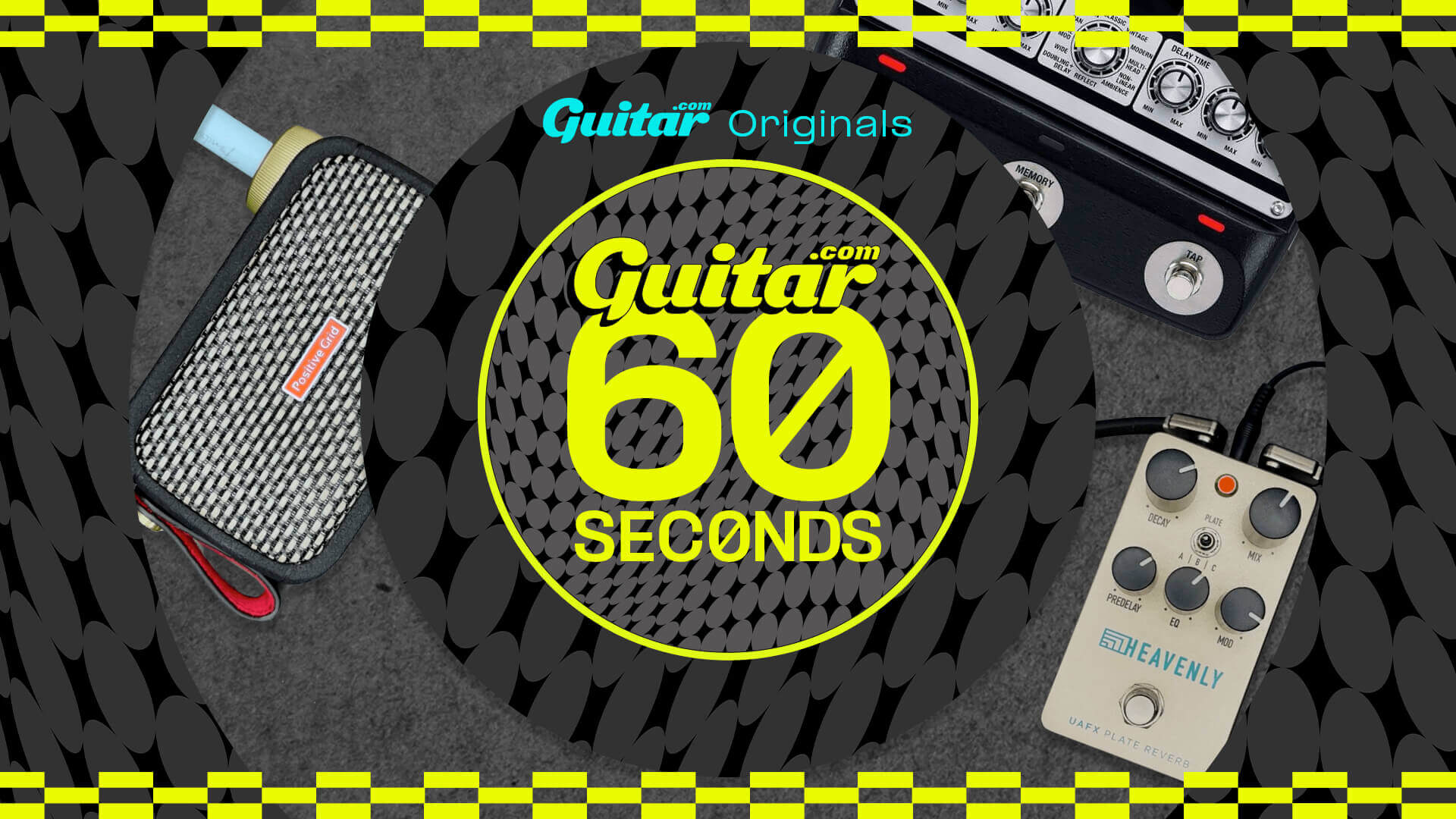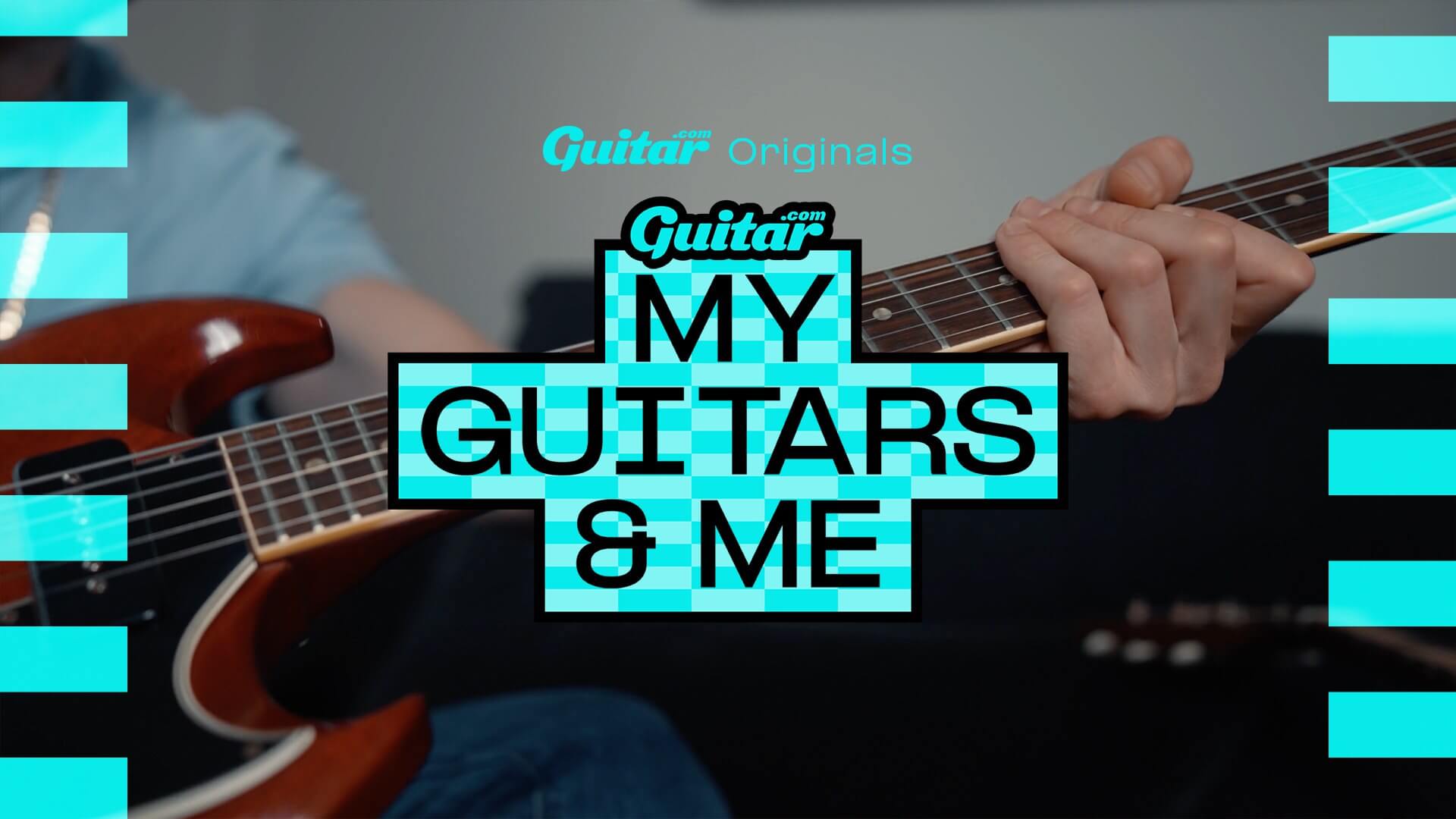“We were known because we didn’t have choruses, now I enjoy that”: The War On Drugs Adam Granduciel embraces pop on I Don’t Live Here Anymore
Adam Granduciel talks us through The War On Drugs’ lambent and collaborative fifth album, owning a vintage Martin once played by Joni Mitchell, and how he’s learned to enjoy making music with his friends again.
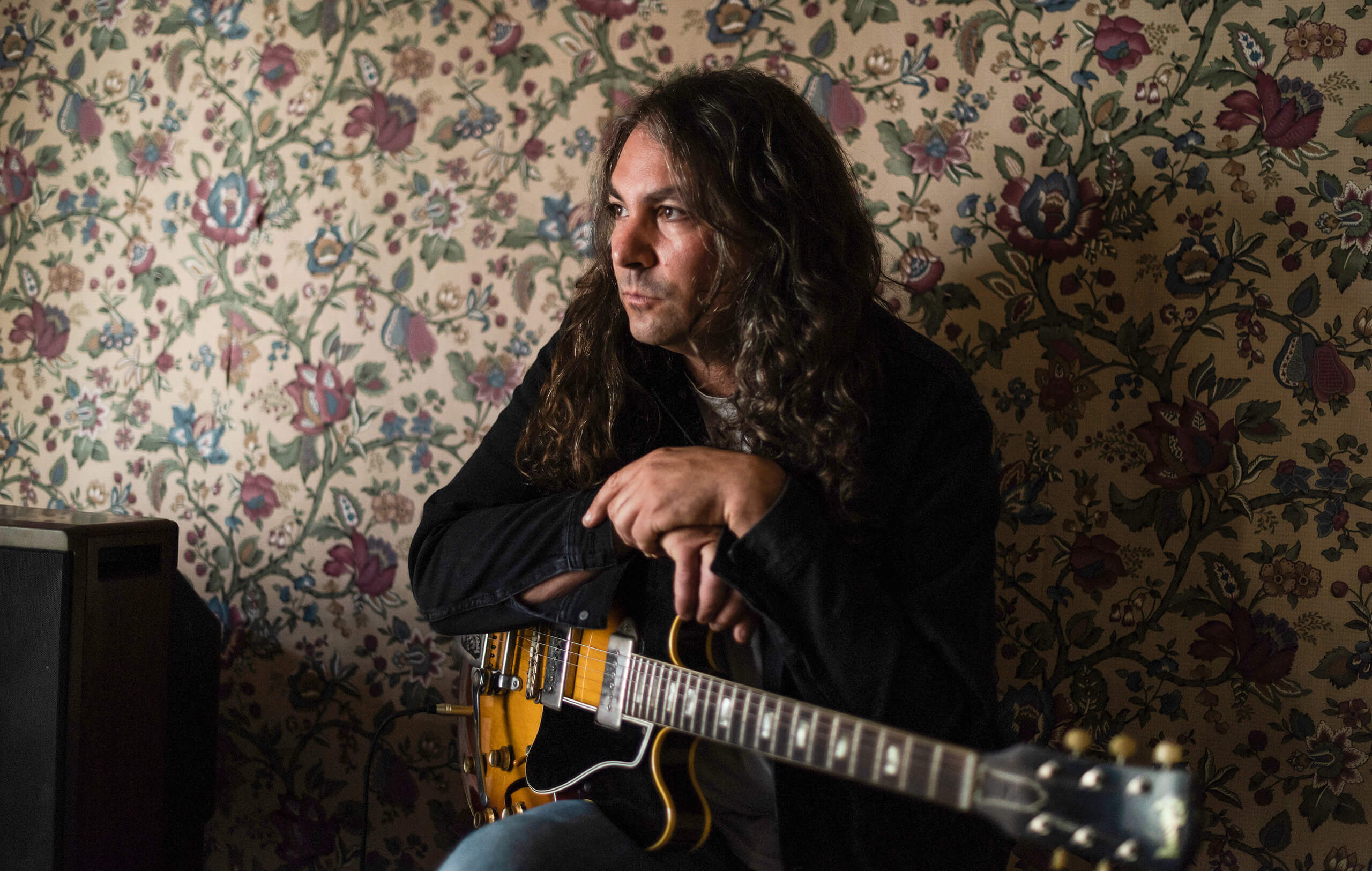
Image: Shawn Brackbill
Adam Granduciel had to start somewhere, so he started in Singapore. It was January 2018, and The War On Drugs were powering across the globe on their A Deeper Understanding tour, having won the Grammy for Best Rock Album with the most complete and electrifying record of their career. As he wandered the streets of an unfamiliar city, fresh ideas whirled around Granduciel’s mind, a melody slowly crystallising. The song that emerged, I Don’t Wanna Wait, sounds unlike anything his band have produced before. “I’ve been trying to write a song like that forever,” says its creator.
From those unfamiliar beginnings, the band’s fifth album, I Don’t Live Here Anymore, took three years to complete, its gestation spread across seven studios in Los Angeles and New York. The War On Drugs’ most collaborative and uplifting record to date is also their most accessible, Granduciel’s soaring guitar heroics coexisting with a multitude of analogue synths and exultant choruses draped in stonewash denim. “I never really had a vision for it per se,” says Granduciel, relaxed and genial on a late-summer morning in Los Angeles. “We started with the idea of having no rules and it being playful, and that was something I tried to incorporate into all the sessions.”
It’s been four years full of milestones for Granduciel since A Deeper Understanding. In early 2019 he turned 40, and a few months later he and his partner, Breaking Bad and Jessica Jones actress Krysten Ritter, welcomed their first child, Bruce – named partially after Springsteen. Perhaps these milestones gave him a different perspective, but as he contemplated the enormity of following up his faultless major-label debut, the pressure that has suffocated him in the past never materialised.
“I think I’m learning the arc of this stuff,” he explains. “When you finish making a record, you’re so inside of it, you’ve worked for three or four years, so the idea of not having any new songs is kind of daunting. Going into this one, I knew I just had to keep working, keep writing and put the sessions together.”
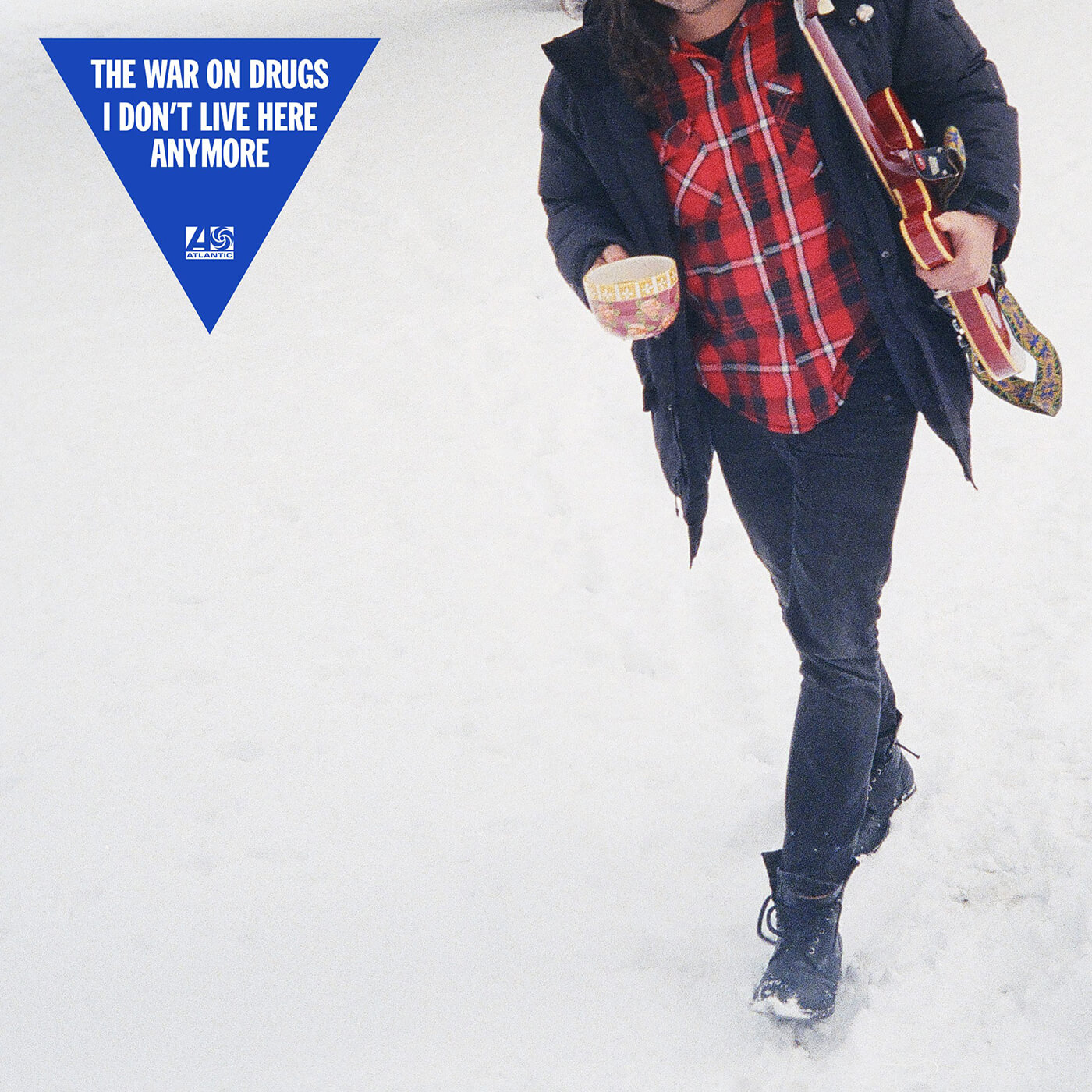
Writers retreat
The first of those sessions was a week-long retreat to upstate New York to work on I Don’t Wanna Wait and a second new song, Change. With trusted foils Dave Hartley on bass and multi-instrumentalist Anthony LaMarca behind the kit, Granduciel plugged in his guitar with only a pinch of plate reverb for company.
“I wanted to show them the snippets I had and see if we could sit in a circle and hash up some of these ideas and see if there were any songs in there,” he recalls. “We had a really productive five days, it was super-fun, there were no rules, no deadline and no expectation to finish it. It was really collaborative, throwing ideas at the wall.”
The finished version of I Don’t Wanna Wait is arresting. The War On Drugs’ widescreen, slow-burn Americana is immediately recognisable, and the spiralling majesty Granduciel wrings from his 1969 Gibson SG is as stirring as anything on A Deeper Understanding. Yet it’s many shades lighter, his playing joined by a cavalcade of shimmering synths and the most ostentatious pop chorus The War On Drugs have ever committed to record.
“This band, three albums ago, were known because we didn’t have choruses, now I enjoy that,” Granduciel explains. “I wasn’t feeling so much this will be a big pop number, more like I wanted to exploit all the intertwining catchy melodies in the song. For a while, it was very moody, and then something happened when I started pushing the vocal a little more and it exploded. I was like, ‘Oh man, I’ve never had a song like this’.”
“It sounded woody and sweet. The guy was like, ‘You know Joni Mitchell played that guitar…’ and I was like, ‘What?!’”
With formative versions of two songs in the bag, sessions continued through the next two years, Granduciel and co-producer Shawn Everett convening to weave together the disparate threads delivered by the band. Joining Hartley and LaMarca were drummer Charlie Hall and saxophonist Jon Natchez, while James Elkington, Michael Bloch and Robbie Bennett all contributed guitar parts. The title track was first demoed by Granduciel in November 2019, becoming the well the rest of the album drew from after Bennett added the chiming arpeggio earworm and Hall the huge reverb-drenched drum pattern. Vocalists Jess Wolfe and Holly Laessig of Brooklyn band Lucius pile in for a hugely infectious chorus. You may detect echoes of The Boys Of Summer by Don Henley, John Waite’s Missing You, even Def Leppard circa 1987, and Granduciel peppers the lyrics with Bob Dylan references, recalling dancing to Desolation Row in Dylan’s audience at the Newport Folk Festival in 2002.
“I sent it to Robbie,” says Granduciel. “It was like nine verses at the time, and he sent it back with the amazing arpeggio hook that he wrote on guitar. It was around thanksgiving and I was walking into a shop to buy a roasting pan. I got the email from him and couldn’t believe it, it was immediately the perfect thing, a classic riff. I couldn’t believe he’d pulled that off.
“It sounds huge, but it’s basically a home recording, with big-sounding drums from the studio. When that song started coming together in early 2020, it felt like all of a sudden I had an album that could anchor the other songs. It’s obviously a poppier song, but it felt very deliberate, and very honest and real for the band. It was exciting to have a song like that and it be so collaborative.”
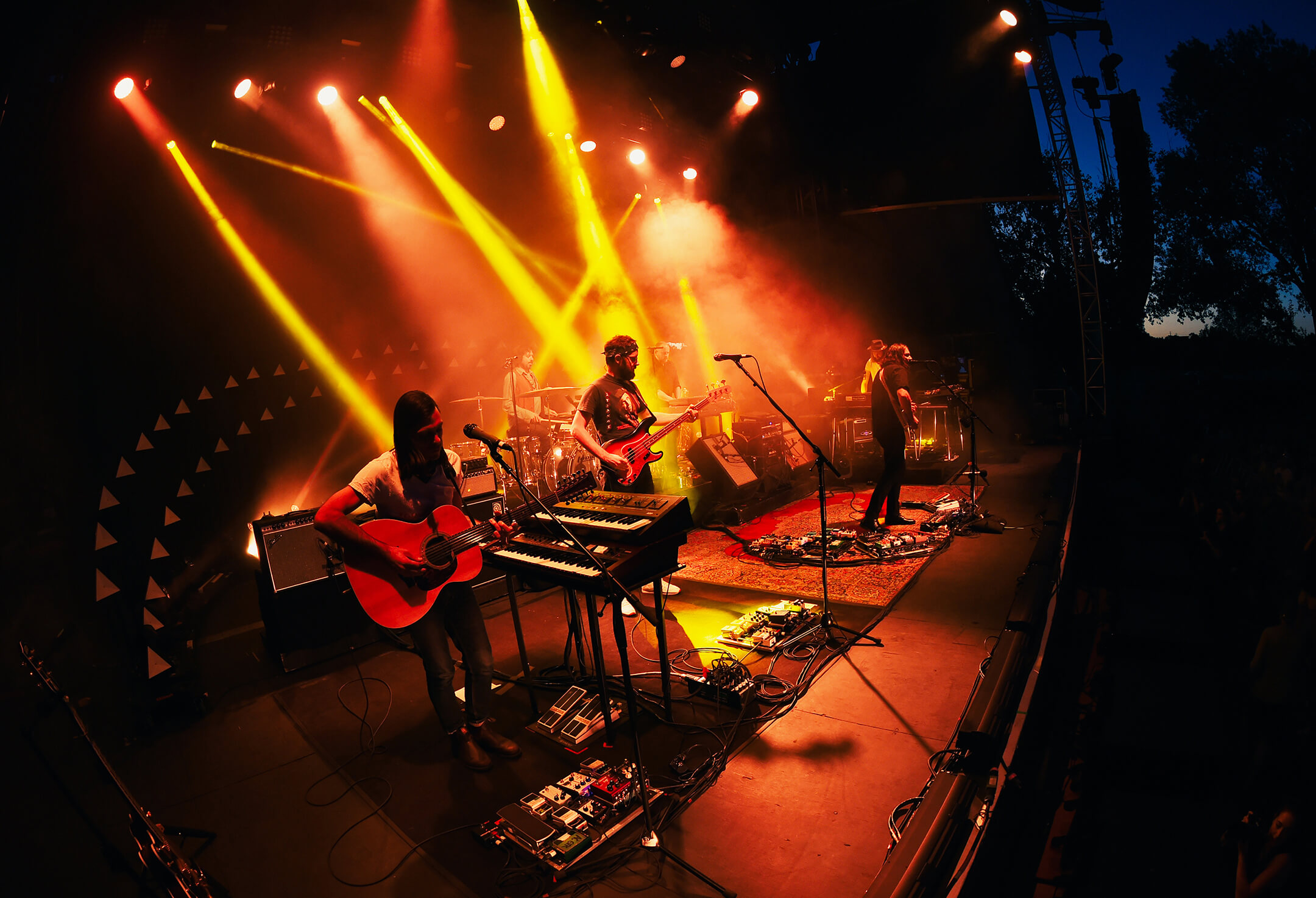
House guitar
While Granduciel used a mouthwatering spread of vintage electrics on I Don’t Live Here Anymore – his natural-finish ’69 SG and ’62 Fender Jazzmaster, a ’64 Fender Jaguar and a ’63 Strat borrowed from Tony Berg at Sound City in Los Angeles – the first guitar we hear is an acoustic. The album’s lead single and opening track, Living Proof, begins in introspective fashion as Granduciel strums an early-60s Martin D-18. In the video, he’s carrying it through the golden wheat fields of Marin County, Northern California, where it once rested in the hands of another great North American songwriter.
“It’s beat up and looks really cool,” says Granduciel. “The previous owner shaved the neck, so it’s really skinny and doesn’t sound like a classic Martin, it doesn’t sound huge. I picked it up at the store and it was so comfortable and sounded really woody and sweet. The guy was like, ‘You know Joni Mitchell played that guitar…’ I was like ‘What?!’.
“The guy that owned it lived in Marin County and built a dulcimer that Joni used. He’d have these parties, and Joni came over a couple of times and played that guitar around the campfire. We shot the video for Living Proof where they lived, in Bolinas. I was like, ‘Shit, that’s where this guitar originally lived’ and I was coming back with it 50 years later.”
Granduciel channels other legends on I Don’t Live Here Anymore. At Sound City, he felt the vibes of Neil Young, who recorded After The Gold Rush in Studio B, and he also tracked at Electric Lady in Greenwich Village. The sound of a British guitar idol, emulated at Clay Blair’s Boulevard Recording in Hollywood, is scattered across several songs, too.
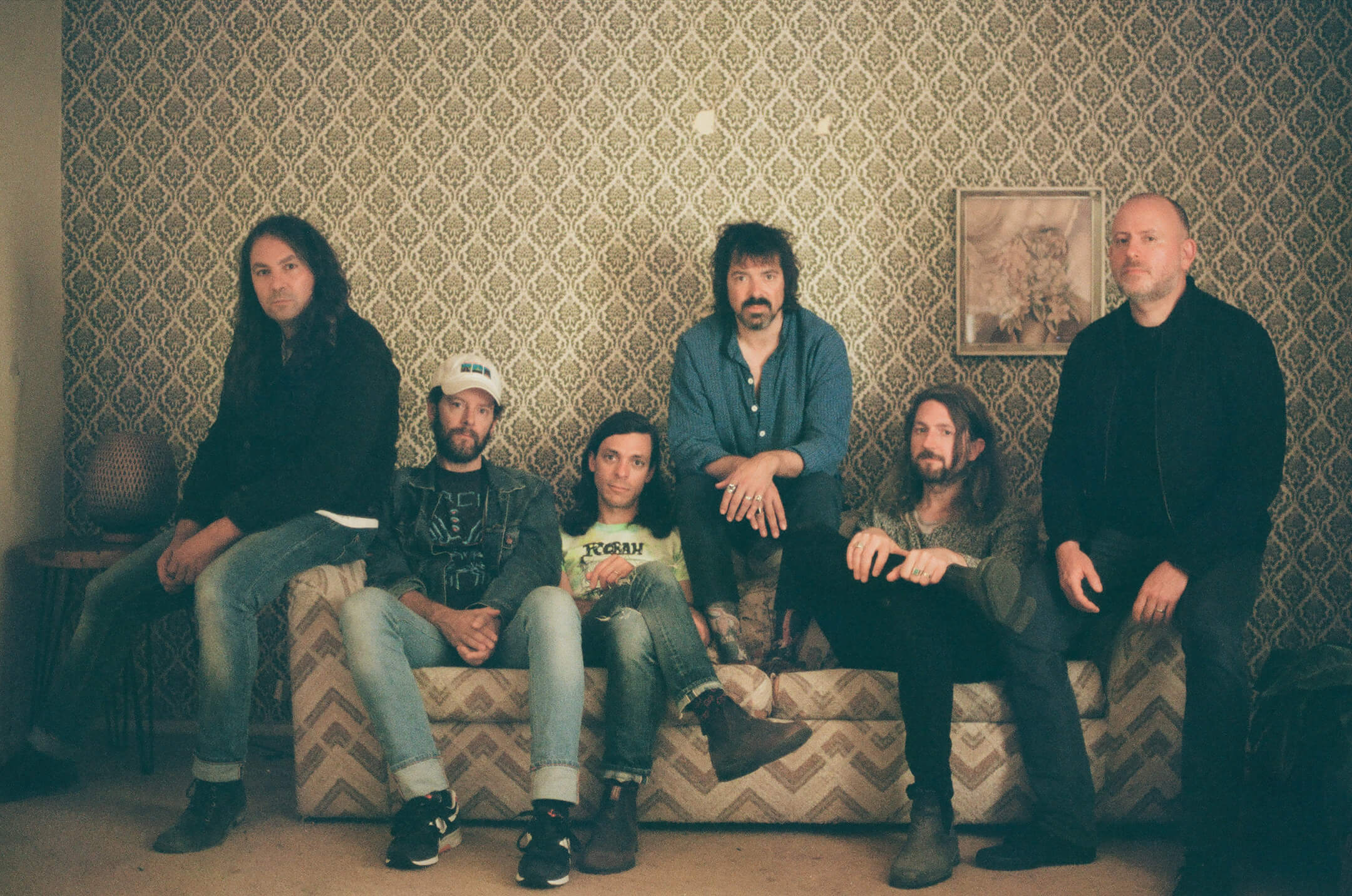
“I remember reading this article about Pete Townshend and how Joe Walsh gave him a ’59 Fender Bassman and an early-60s Chet Atkins, and that ended up being the sound of Who’s Next,” says Granduciel. “You think he’s just in there with his Hiwatt, but he was given this combo by Joe Walsh and he ended up getting this wild feedback. Clay has a ’59 Bassman and a Gretsch reissue of that Chet Atkins guitar, so I was trying to recreate that chain. I had the Bassman cranked and was finding these little pockets of tone. It was inspiration, the Pete Townshend sound, ‘Let’s see what I can add to my songs with that’.”
The subject of vintage amps has always been close to Granduciel’s heart, and I Don’t Live Here Anymore is positively overflowing with them. “On Living Proof, I used two 50s Tweed Deluxes at Electro-Vox [in Hollywood],” he says. “I got a ’53 Tweed Deluxe from a friend last year, which I used a lot towards the end of tracking. We reamped a lot of the vocals on Old Skin through my ’53 Tweed Deluxe and a bunch of stuff through a Roland JC120. I used a blackface Princeton and the ’59 Bassman at Clay’s. One of my favourite amps I have is this old Gibson Discoverer with a 10-inch speaker. I love that amp and they call them Tweed killers. I have a drip edge Vibro Champ, a ’68. It’s like my SG, just one of those things I always record with.”
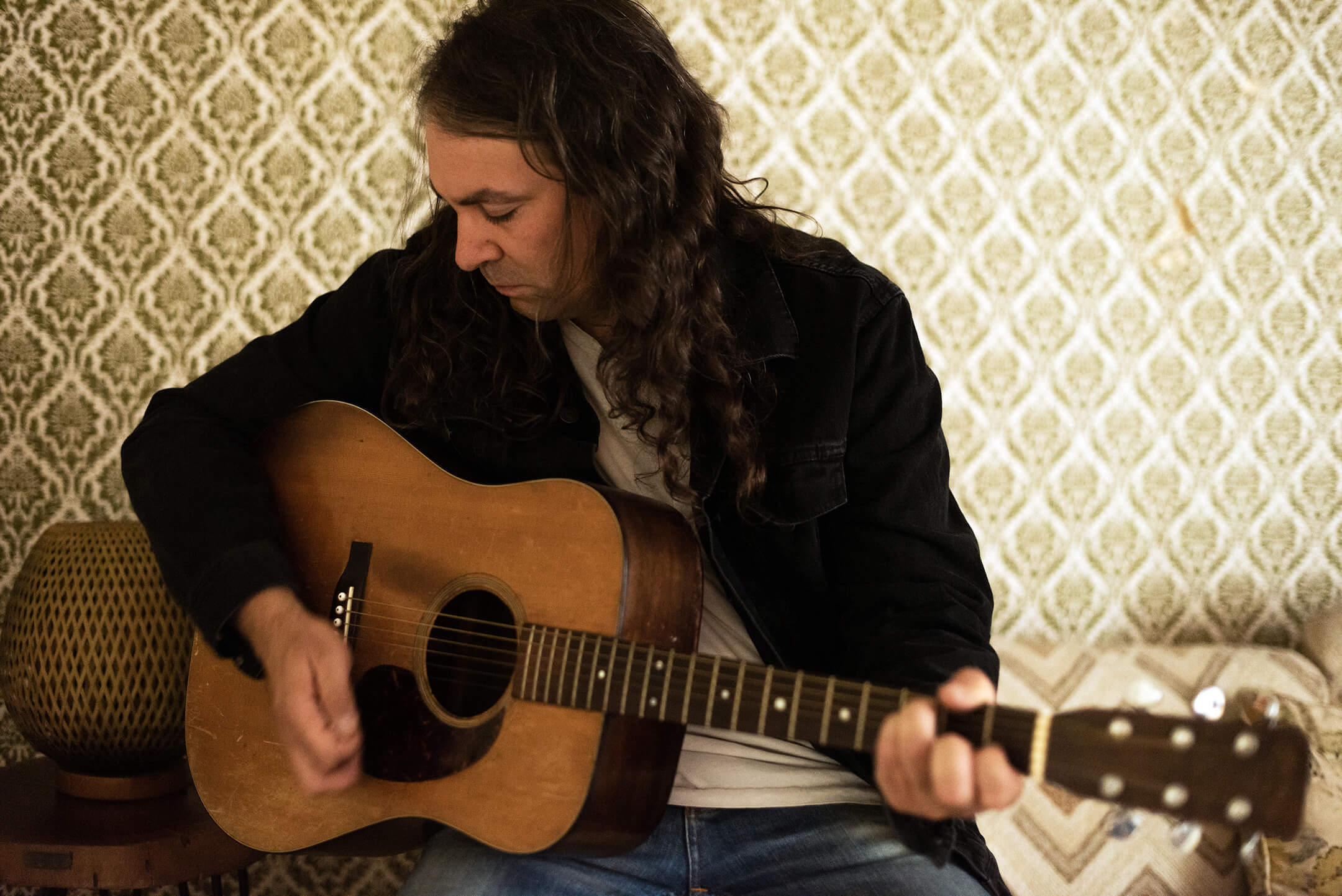
Out of the hole
An infamous studio perfectionist who disappeared so far down the rabbithole while mixing A Deeper Understanding he was measuring minute speaker cone vibrations, back in 2017 Granduciel told us how he prefers to compose his solos rather than drifting into unscripted noodling. The approach for this album was “similar”, he explains. “I think I’m at the stage now where I try to refine parts on my own and then if it something happens in the moment that feels real, it’s worth keeping. Sometimes you just hit on an idea, and think, ‘I’m gonna work on this a little bit and I wanna make sure what I put down is a little more thought out’, but it changes song to song.
“Living Proof was fairly composed at home. That was a solo piano song for a while, and I had this moment where I figured out how I could incorporate a guitar. Some of them were more haphazard. I Don’t Wanna Wait, the solo was from the original demo session, it was so loose that I kept it because I couldn’t imagine what I’d do if I tried to compose something.”
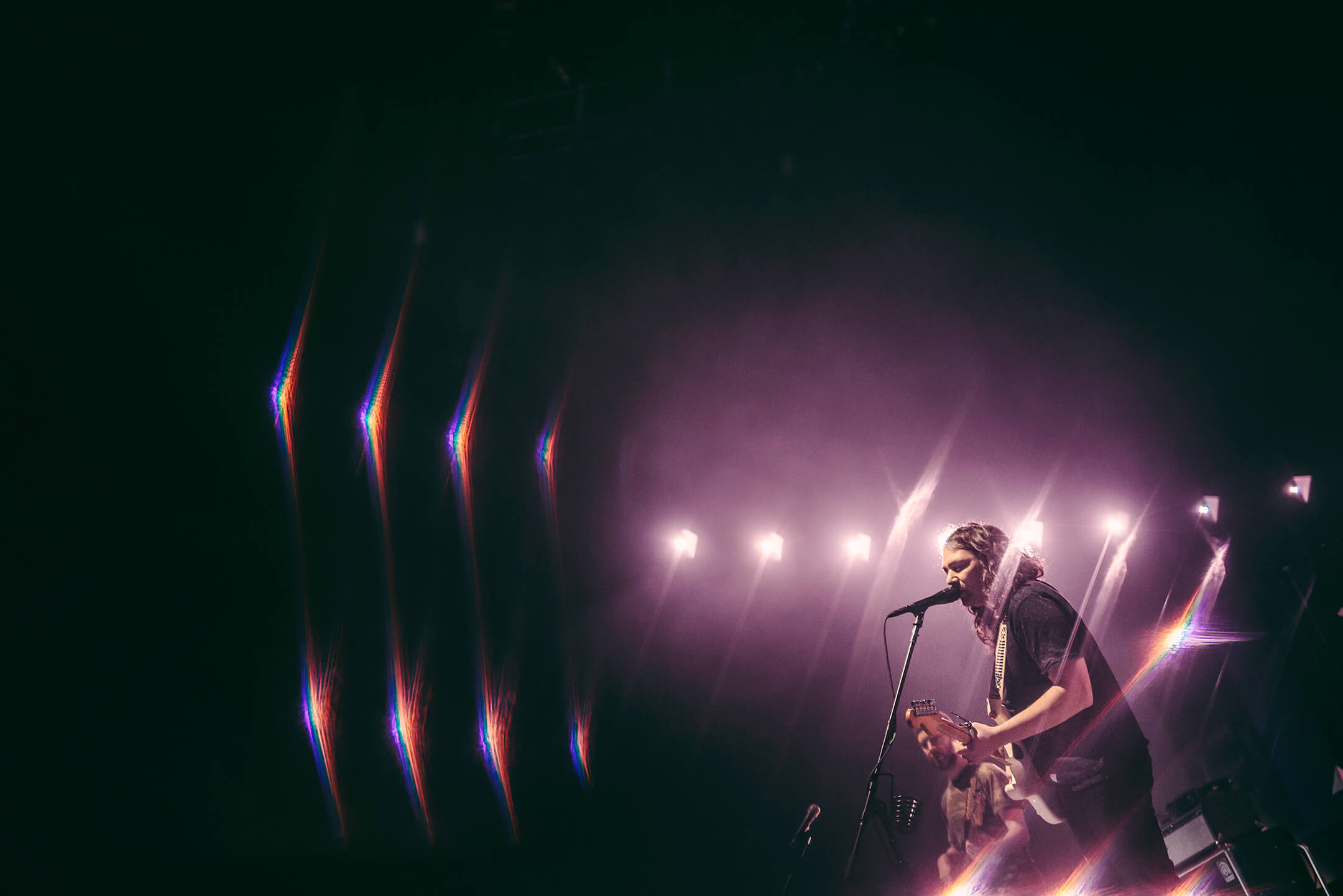
One of the album’s most captivating solos comes on Victim, which finds Granduciel “a victim of my own desire… walking through the fields of glass”. In the song’s midst, the lavish sonic textures subside, leaving a solitary motorik beat and sputtering explosions from the ’69 SG that are simply lacerating.
“That was a [Crowther] Prunes & Custard pedal,” he explains. “I was playing my SG, basically my favourite guitar. The solo was an improvised moment, it wasn’t worth overthinking. I played that solo through a cranked amp and then took the session home and played it through the Prunes & Custard, going mono into a Moogerfooger Cluster Flux, so it has that width. I really love the Crowther stuff, the Hotcake sounds best when everything is turned up to 10. A lot of the time when I’m recording, I’m trying to get a more simple sound. It’s guitar, Hotcake, plate.”
In years gone by, the image of The War On Drugs’ troubled genius toiling away in solitude, forever in search of something unreachable, wasn’t far from the truth. This time round, a brighter more collaborative mood prevailed and Granduciel is quick to recognise the contributions of the other guitarists on the record.
“Finishing this album was quite
the feat, with everything that’s happening. It was a journey”
“Mike Bloch is a good friend and I love his guitar playing because he doesn’t play like anybody else. He’s a trained flamenco player, and he has a rhythmic thing when he plays electric, he’s fearless. He comes up with melodies that are not immediately deliberate, it’s like the melody is there but he’s mostly playing within the chord and always finding this really beautiful melody, like in Occasional Rain where I credited him with playing the ‘raindrop guitar’.
“Jim [Elkington] is an old friend, he’s an amazing guitar player. I just like putting people together, and I try to get outside of the band element when we make records, just having people in the studio that we all love and respect and bring a different flavour. I’m good at certain things, but I can’t do it all and it’s exciting for me to have all these other people playing guitar and giving me something to play off.”
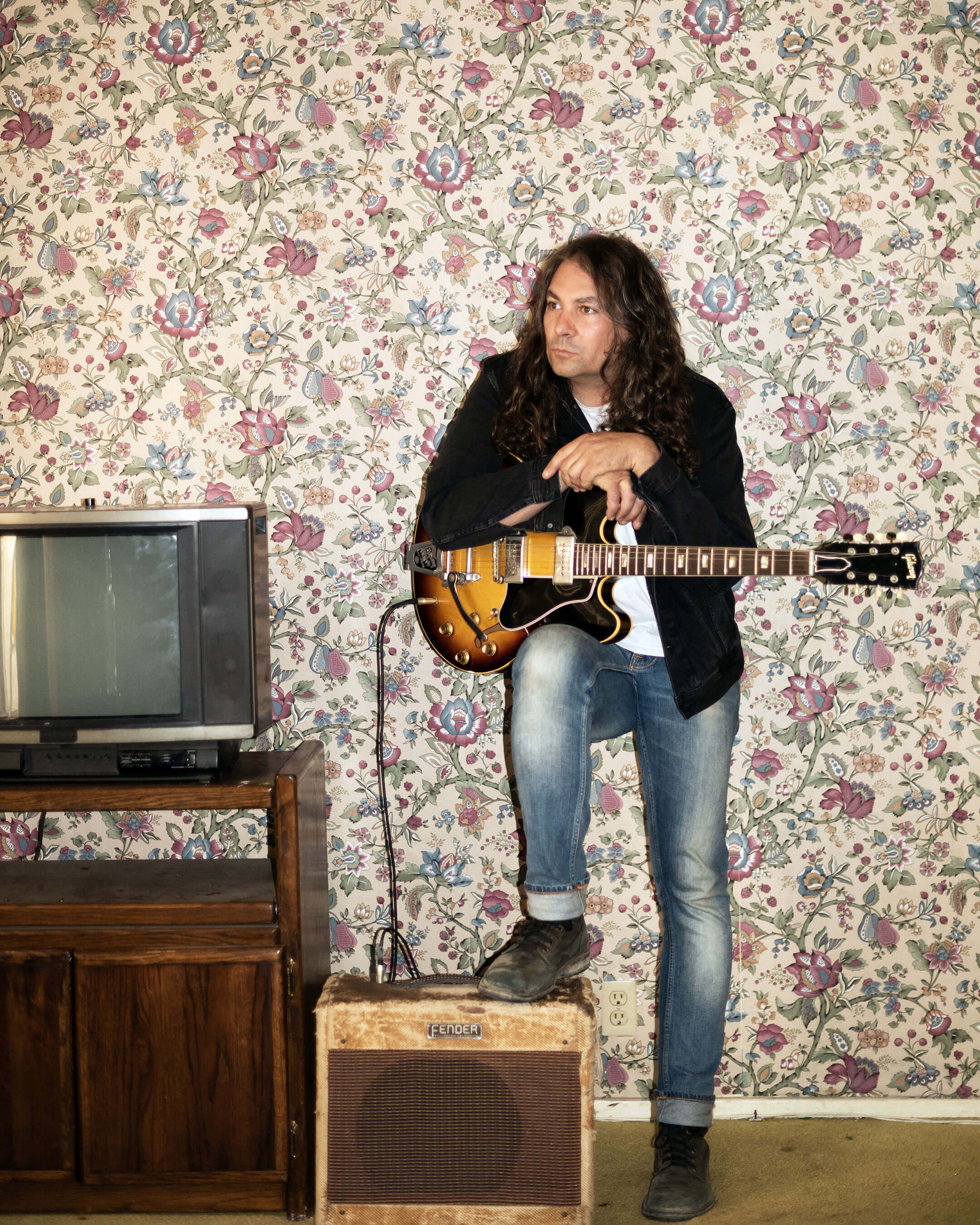
The love and respect Granduciel has for this troupe of seasoned musicians is one of the reasons The War On Drugs are one of the most exhilarating live bands on the planet. In November, they’ll return to the road for a 30-date tour of the US and Canada before European dates in the spring and a lap of the UK’s biggest stages, taking in London’s 20,000-capacity O2 arena in April. While Granduciel’s favoured guitars on the Deeper Understanding tour were his ’65 Reissue Jazzmaster and a Gretsch White Falcon, he’s planning to deploy some old favourites for these shows.
“I’m definitely going to tour with my ’62 Jazzmaster, I also have this really cool Strat I bought from Jesse [Trbovich] in Kurt [Vile]’s band. It’s a ’57 Reissue that they made maybe 10 years ago, but didn’t make that many. I just love the neck. I want to bring my SG because I need to use it for Living Proof, but it doesn’t sound good through the Alembic stuff I use, because it’s more of a single-coil thing, so I’m going to have a rig where I can hit a switch and play through a Tweed or another amp that sounds good with the humbuckers.”
That’s all for the future. I Don’t Live Here Anymore is an album, says Granduciel, about “movement, of pushing forward”, but also casting an eye back at the road that brought him here. He hasn’t yet begun contemplating where The War On Drugs’ next record might take them. Rather, he’s craving a return to the communal recording sessions of their first albums, 2008’s Wagonwheel Blues and Slave Ambient, released in 2011, with a new band headquarters in the San Fernando Valley in the pipeline. As Granduciel concludes wistfully on his new album’s second track, Harmonia’s Dream, “Sometimes forwards is the only way back”.
“Finishing this album was quite the feat, with everything that’s happening,” he reflects. “It was a journey. Now I’m just programming my pedalboard, getting the show ready, trying to figure it all out, and I’m building a studio and rehearsal place for the band in Burbank. My only thing looking forward is to be able to have my own place where I can get back to creating music in the way that I was trying to do it years ago.”
I Don’t Live Here Anymore by The War On Drugs is out now on Atlantic Records.

